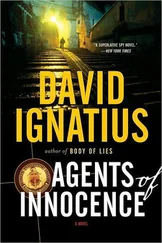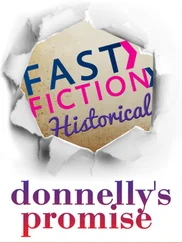Ignatius Donnelly - Antediluvian world
Здесь есть возможность читать онлайн «Ignatius Donnelly - Antediluvian world» весь текст электронной книги совершенно бесплатно (целиком полную версию без сокращений). В некоторых случаях можно слушать аудио, скачать через торрент в формате fb2 и присутствует краткое содержание. Жанр: Старинная литература, на русском языке. Описание произведения, (предисловие) а так же отзывы посетителей доступны на портале библиотеки ЛибКат.
- Название:Antediluvian world
- Автор:
- Жанр:
- Год:неизвестен
- ISBN:нет данных
- Рейтинг книги:5 / 5. Голосов: 1
-
Избранное:Добавить в избранное
- Отзывы:
-
Ваша оценка:
- 100
- 1
- 2
- 3
- 4
- 5
Antediluvian world: краткое содержание, описание и аннотация
Предлагаем к чтению аннотацию, описание, краткое содержание или предисловие (зависит от того, что написал сам автор книги «Antediluvian world»). Если вы не нашли необходимую информацию о книге — напишите в комментариях, мы постараемся отыскать её.
Antediluvian world — читать онлайн бесплатно полную книгу (весь текст) целиком
Ниже представлен текст книги, разбитый по страницам. Система сохранения места последней прочитанной страницы, позволяет с удобством читать онлайн бесплатно книгу «Antediluvian world», без необходимости каждый раз заново искать на чём Вы остановились. Поставьте закладку, и сможете в любой момент перейти на страницу, на которой закончили чтение.
Интервал:
Закладка:
13. The Barbarians who are alluded to by Homer and Thucydides were a race of ancient navigators and pirates called Cares, or Carians, who occupied the isles of Greece before the Pelasgi, and antedated the Phoenicians in the control of the sea. The Abbe Brasseur de Bourbourg claims that these Carians were identical with the Caribs of the West Indies, the Caras of Honduras, and the Gurani of South America. (Landa’s “Relacion,” pp. 52-65.)
14. When we consider it closely, one of the most extraordinary customs ever known to mankind is that to which I have already alluded in a preceding chapter, to wit, the embalming of the body of the dead man, with a purpose that the body itself may live again in a future state. To arrive at this practice several things must coexist: a. The people must be highly religious, and possessed of an organized and influential priesthood, to perpetuate so troublesome a custom from age to age.
b. They must believe implicitly in the immortality of the soul; and this implies a belief in rewards and punishments after death; in a heaven and a hell.
c. They must believe in the immortality of the body, and its resurrection from the grave on some day of judgment in the distant future.
d. But a belief in the immortality of the soul and the resurrection of the body is not enough, for all Christian nations hold to these beliefs; they must supplement these with a determination that the body shall not perish; that the very flesh and blood in which the man died shall rise with him on the last day, and not a merely spiritual body.
Now all these four things must coexist before a people proceed to embalm their dead for religious purposes. The probability that all these four things should coexist by accident in several widely separated races is slight indeed. The doctrine of chances is all against it. There is here no common necessity driving men to the same expedient, with which so many resemblances have been explained; the practice is a religious ceremony, growing out of religious beliefs by no means common or universal, to wit, that the man who is dead shall live again, and live again in the very body in which he died. Not even all the Jews believed in these things.
If, then, it should appear that among the races which we claim were descended from Atlantis this practice of embalming the dead is found, and nowhere else, we have certainly furnished evidence which can only be explained by admitting the existence of Atlantis, and of some great religious race dwelling on Atlantis, who believed in the immortality of soul and body, and who embalmed their dead. We find, as I have shown: First. That the Guanches of the Canary Islands, supposed to be a remnant of the Atlantean population, preserved their dead as mummies.
Second. That the Egyptians, the oldest colony of Atlantis, embalmed their dead in such vast multitudes that they are now exported by the ton to England, and ground up into manures to grow English turnips.
Third. That the Assyrians, the Ethiopians, the Persians, the Greeks, and even the Romans embalmed their dead.
Fourth. On the American continents we find that the Peruvians, the Central Americans, the Mexicans, and some of the Indian tribes, followed the same practice.
Is it possible to account for this singular custom, reaching through a belt of nations, and completely around the habitable world, without Atlantis?
15. All the traditions of the Mediterranean races look to the ocean as the source of men and gods. Homer sings of “Ocean, the origin of gods and Mother Tethys.”
Orpheus says, “The fair river of Ocean was the first to marry, and he espoused his sister Tethys, who was his mothers daughter.” (Plato’s “Dialogues,” Cratylus, p. 402.) The ancients always alluded to the ocean as a river encircling the earth, as in the map of Cosmos (see page 95
ante); probably a reminiscence of the great canal described by Plato which surrounded the plain of Atlantis. Homer (Iliad, book xviii.) describes Tethys, “the mother goddess,” coming to Achilles “from the deep abysses of the main:”
“The circling Nereids with their mistress weep, And all the sea-green sisters of the deep.”
Plato surrounds the great statue of Poseidon in Atlantis with the images of one hundred Nereids.
16. in the Deluge legends of the Hindoos (as given on page 87 ante), we have seen Manu saving a small fish, which subsequently grew to a great size, and warned him of the coming of the Flood. In this legend all the indications point to an ocean as the scene of the catastrophe. It says: “At the close of the last calpa there was a general destruction, caused by the sleep of Brahma, whence his creatures, in different worlds, were drowned in a vast ocean. . . . A holy king, named Satyavrata, then reigned, a servant of the spirit which moved on the waves” (Poseidon?), “and so devout that water was his only sustenance. . . . In seven days the three worlds” (remember Poseidon’s trident) “shall be plunged in an ocean of death.” . . . “‘Thou shalt enter the spacious ark, and continue in it secure from the Flood on one immense ocean.’ . . . The sea overwhelmed its shores, deluged the whole earth, augmented by showers from immense clouds.” (“Asiatic Researches,” vol. i., p. 230.) All this reminds us of “the fountains of the great deep and the flood-gates of heaven,” and seems to repeat precisely the story of Plato as to the sinking of Atlantis in the ocean.
17. While I do not attach much weight to verbal similarities in the languages of the two continents, nevertheless there are some that are very remarkable. We have seen the Pan and Maia of the Greeks reappearing in the Pan and Maya of the Mayas of Central America. The god of the Welsh triads, “Hu the mighty,” is found in the Hu-nap-bu, the hero-god of the Quiches; in Hu-napu, a hero-god; and in Hu-hu-nap-hu, in Hu-ncam, in Hu-nbatz, semi-divine heroes of the Quiches. The Phoenician deity El “was subdivided into a number of hypostases called the Baalim, secondary divinities, emanating from the substance of the deity” (“Anc. Hist.
East,” vol. ii., p. 219); and this word Baalim we find appearing in the mythology of the Central Americans, applied to the semi-divine progenitors of the human race, Balam-Quitze, Balam-Agab, and Iqui-Balam.
CHAPTER V.
THE QUESTION OF COMPLEXION.
The tendency of scientific thought in ethnology is in the direction of giving more and more importance to the race characteristics, such as height, color of the hair, eyes and skin, and the formation of the skull and body generally, than to language. The language possessed by a people may be merely the result of conquest or migration. For instance, in the United States to-day, white, black, and red men, the descendants of French, Spanish, Italians, Mexicans, Irish, Germans, Scandinavians, Africans, all speak the English language, and by the test of language they are all Englishmen; and yet none of them are connected by birth or descent with the country where that language was developed.
There is a general misconception as to the color of the European and American races. Europe is supposed to be peopled exclusively by white men; but in reality every shade of color is represented on that continent, from the fair complexion of the fairest of the Swedes to the dark-skinned inhabitants of the Mediterranean coast, only a shade lighter than the Berbers, or Moors, on the opposite side of that sea.
Tacitus spoke of the “Black Celts,” and the term, so far as complexion goes, might not inappropriately be applied to some of the Italians, Spaniards, and Portuguese, while the Basques are represented as of a still darker hue. Tylor says (“Anthropology,” p. 67), “On the whole, it seems that the distinction of color, from the fairest Englishman to the darkest African, has no hard and fast lines, but varies gradually from one tint to another.”
Читать дальшеИнтервал:
Закладка:
Похожие книги на «Antediluvian world»
Представляем Вашему вниманию похожие книги на «Antediluvian world» списком для выбора. Мы отобрали схожую по названию и смыслу литературу в надежде предоставить читателям больше вариантов отыскать новые, интересные, ещё непрочитанные произведения.
Обсуждение, отзывы о книге «Antediluvian world» и просто собственные мнения читателей. Оставьте ваши комментарии, напишите, что Вы думаете о произведении, его смысле или главных героях. Укажите что конкретно понравилось, а что нет, и почему Вы так считаете.












